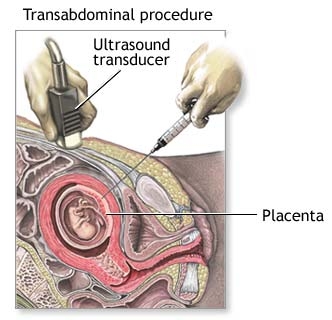 After giving birth by cesarean section you will more than likely feel too excited to feel any pain from the birth of your baby! Well, at least that’s what we may like to think anyway.
Unfortunately you will be recovering from major abdominal surgery and you will still have to deal with the pain and will also be spending the next 3-5 days in hospital.
If you had an epidural or spinal block for your c-section, your anesthesiologist may add morphine which will give you a good amount of pain relief for up to 24 hours without the grogginess that you get from systemic narcotics. Some anesthesiologists may leave it in place for 12 to 24 hours after surgery so you can get more medication through it if needed.
Once your regional anesthetic is no longer providing adequate pain relief, you’ll be given systemic pain medication, which is usually in pill form.
If you had a general anesthesic for your c-section or you don’t get a dose of morphine through your spinal or epidural afterward, then you may be given systemic narcotics for immediate pain relief. You will either get a shot of pain medication every three to four hours or you’ll use a system called “patient-controlled anesthetic”: This is simply when you push a button when you’re feeling discomfort and medication is delivered through your IV. The doses are controlled by a machine so you don’t get more than what’s safe.
Either way, do not get shy about asking for more medication if you are feeling any pain.
After giving birth by cesarean section you will more than likely feel too excited to feel any pain from the birth of your baby! Well, at least that’s what we may like to think anyway.
Unfortunately you will be recovering from major abdominal surgery and you will still have to deal with the pain and will also be spending the next 3-5 days in hospital.
If you had an epidural or spinal block for your c-section, your anesthesiologist may add morphine which will give you a good amount of pain relief for up to 24 hours without the grogginess that you get from systemic narcotics. Some anesthesiologists may leave it in place for 12 to 24 hours after surgery so you can get more medication through it if needed.
Once your regional anesthetic is no longer providing adequate pain relief, you’ll be given systemic pain medication, which is usually in pill form.
If you had a general anesthesic for your c-section or you don’t get a dose of morphine through your spinal or epidural afterward, then you may be given systemic narcotics for immediate pain relief. You will either get a shot of pain medication every three to four hours or you’ll use a system called “patient-controlled anesthetic”: This is simply when you push a button when you’re feeling discomfort and medication is delivered through your IV. The doses are controlled by a machine so you don’t get more than what’s safe.
Either way, do not get shy about asking for more medication if you are feeling any pain.
What’s recovery like during the first few days?
You may feel groggy and possibly nauseated right after the surgery, as nausea can last up to 48 hours after your surgery, but your caregiver can give you medication to minimize your discomfort as discussed above. Many moms also feel itchy all over, particularly those who received narcotics in their epidural or spinal. If this happens to you, let your caregiver know so she can give you medication to relieve the itchiness.Surviving A C-Section


